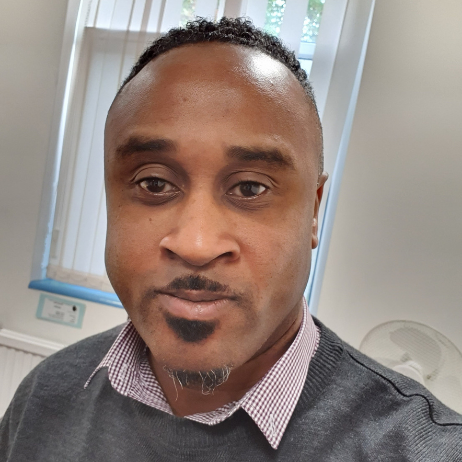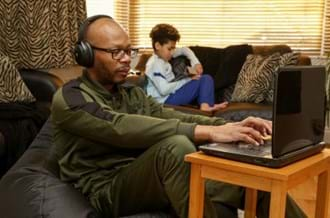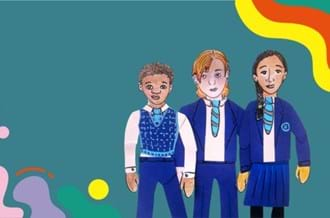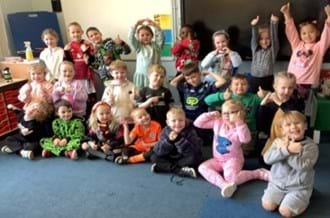5 ways to grow with your child
5 ways to grow with your child

Judah Racham
Programme Leader for Family Work - Judah is a BACP registered counsellor, and Parent-training Mentor, who joined Place2Be in 2021. He has over 7 years experience delivering counselling and therapeutic services for adults and children. Judah has been supporting parents and carers, delivering parent training and supervising parenting practitioners within local authorities and the NHS for over 17 years.
This year’s Children’s Mental Health Week theme is Growing Together, and as parents and carers we are constantly having to grow, learn and adapt. Judah Racham, Place2Be’s Family Lead, shares his advice on how we can do this.
As children get older, it can be hard to know how best to be there for them as a parent or carer, and it can be challenging to adapt our parenting styles while our children grow and mature. Each stage of your child’s development may require a new or different response as a parent, and this will mean learning a new way of doing things.
It is important to know that we don’t have to know all the answers as a parent, and we can learn and grow together with our children. Here are five ways that you can do this:
Be flexible and adapt
It can be easy to feel pressured to follow what other parents are doing, or to assume that what works for one child in your family will work well for another. Every child is different, but as parents and carers, we know our children best.
There is no rulebook or official guide to parenting, so take the time to learn what works best for your family. Sometimes, you may need to adapt or change your approach, but together as a family you can figure out what works well.
For example, your child might be looking for more independence as they get older – you could help them do this by adapting your relationship, and gradually giving them more responsibility when they are ready for it.
Be open to all conversations
It is important your child knows that they can talk to you about anything and ask any questions they may have. Try to be open and accepting about what your child can talk to you about, even if it is a topic that you were not able to talk to your own parents about.
Create a dialogue that enables your child to ask questions – they will appreciate the opportunity to ask you about things they are curious about. As children get older, they may have questions about more ‘grown-up’ topics, so think about how you can talk about some subjects in an age-appropriate way. This might be uncomfortable, so it helps to think about what to say in advance, maybe with the help of another trusted adult.
If our children know that they can talk to us about anything and that we are always there to listen, they are more likely to come to us when they need support or advice.
Take time to reflect
We live in such a busy world, so it’s important to create moments to reflect on your own journey as a parent. Sometimes, we make the wrong decisions and that’s okay.
Try not to be self-critical. Just like our children, we are all learning and growing and making mistakes is part of that journey. Perhaps we overreact when our child does something wrong, or we don’t listen when they’re trying to tell us something.
When things don’t go well, reflect and consider other ways you could approach the situation if it happened again. If you can, have a conversation with your child about this too, so they know it’s okay to make and discuss wrong decisions.
Don’t make comparisons
It can be easy to compare our children to other children – be it comparing siblings, comparing to other children at school, or even children in popular culture. Try not to focus on what you think your child should be doing.
It can also be easy to compare our children to how they were before, but as they grow older (both physically and emotionally), children are constantly changing. This growth is not always linear and sometimes there will be setbacks. Your toddler might happily wave you off as they go into nursery one day, and then cry when you drop them off the next. Your teenager might appear to be happy and unfazed by their exams one day, and anxious and stressed the next. This is all part of how we grow emotionally.
Prioritise your own self-care
If you fly in an airplane, you’re told that in the event of an emergency you should put your own oxygen mask on before you put on your child’s. This is because if our children lose consciousness, they are still breathing – but if we, as parents, lose consciousness, we won’t be able to help our children.
The same can be applied to all aspects of parenting. Taking care of yourself will put you in a better position to take care of your own child.
Think of ways you can look after yourself and feel supported. This could be external support; finding other trusted adults around us to talk to, or to bounce ideas off. It could also be internal support – finding time to switch off and focus on you.
As our children continue to grow and change, our ways of parenting them will also do the same. We need to be kind to ourselves as we try our best to respond to new situations that we will face while parenting. There is no one right way to grow with children, only a right way that will work best for us.
News & blogs

Place2Be online parenting course now available to organisations
Place2Be's online parenting course helps working parents and carers feel better equipped to manage their parenting journey.
Read more
Three charities launch wellbeing video for young carers
Three charities have joined forces to launch a new video aimed at fostering the wellbeing and creativity of young carers.
Read more
“Know Yourself, Grow Yourself”: A look back at Children’s Mental Health Week 2025
During Children’s Mental Health Week 2025, we encouraged people to embrace self-awareness and explore what it means to them.
Read more



